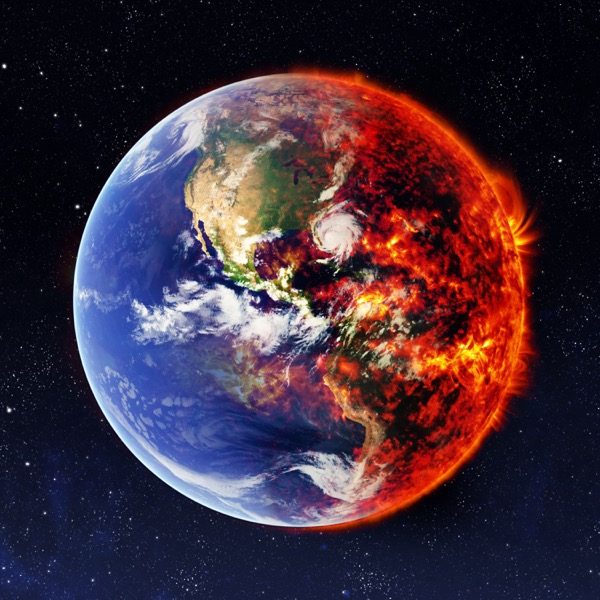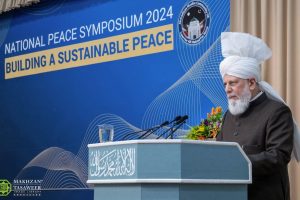Sinwan Basharat, Canada – Deputy Editor Science Section

In early December last year, a 90-year-old British grandmother, Margret Keenan, became the first person in the world (not considering research participants) to receive a COVID-19 vaccine. [1] Images of Keenan, cheerfully going through the hospital corridors with NHS staff applauding, quickly made waves across international media. There was a sense of optimism and a collective sigh of relief, that perhaps, soon enough, we will all get through this pandemic together.
Since that December morning, more than 175 million doses of vaccines have been administered across the world. [2] Global collaboration between scientists and investments by governments has been a key driver to help develop vaccines in such a short period of time. [3]
Yet, while there was immense global cooperation to help develop vaccines, unfortunately, the same cannot be said about their current distribution. According to the World Health Organization (WHO), high-income countries, which make up 16% of the world’s population, have bought 60% of the world’s vaccine supply. [4] WHO officials have raised alarms that vaccine nationalism – where countries bid for doses and prioritize access to a majority of their own populations – poses a significant threat to the global COVID-19 recovery, both from a public health and economic perspective. [5], [6]
What Does Vaccine Nationalism Mean for Low-and-Middle Income Countries?
Many high-income countries have procured three to five times the number of vaccine doses to cover their entire country. [7] These nations made pre-market purchasing commitments directly with different manufacturers. The prices negotiated through their bilateral deals are estimated to be from $6-$20 per course for viral vector vaccines (e.g., Oxford-AstraZeneca) to $24-$74 per course for mRNA vaccines (e.g., Pfizer-BioNTech and Moderna). [7]
In contrast, the reality for most low-and-middle-income countries (LMICs) is that they are neither able to compete at such prices nor do they have the influence to make similar bilateral deals. [8] They are relying solely on the WHO program called Covax, where high-income countries purchase a portion of their vaccines through a global agreement and in doing so, also help finance doses for LMICs. [9], [10] While the program is posed to help millions of people, currently it is expected to deliver vaccines to just 3% of people in the 145 countries who have signed up, within the first half of the year (some of these vaccines will also go to the contributing high-income countries). [9]
The bleak inequality is that while wealthier nations aim to vaccinate most of their populations before the end of the year, LMICs have little hope of vaccinating even their front-line health care workers by the year 2022 or 2023.[5], [8] They will continue to face lockdowns, restrictions, and tragic losses of loved ones. Where dark clouds of the pandemic gloom over the entire world, most people in LMICs stand at the very end of the queue to be given any refuge.
It is, of course, natural for countries to prioritize their own populations. At the same time, do wealthier countries have an obligation to also share the supply of vaccines with LMICs? Is there a moral imperative to reduce the divide between the haves and have-nots?
Islamic Perspective on Justice and Equity
وَ فِیۡۤ اَمۡوَالِھِمۡ حَقٌّ لِّلسَّآئِلِ وَ الۡمَحۡرُوۡمِ
‘And in their wealth was a share for one who asked for help and for one who could not.’ [17]
The Holy Qur’an has stated in this verse that one of the hallmarks of righteous people, especially those with greater wealth, is that they serve those less fortunate. Their wealth is a like trust. As such, it is not a favour, but rather an obligation of wealthier individuals, to support those with less means. [11] The current Head of the Ahmadiyya Muslim Community, His Holiness, Hazrat Mirza Masoor Ahmad (aba) has further explained that from an Islamic perspective, this principle of justice and equity applies at a higher level to nations as well. He stated,
‘Islam has drawn our attention to various means for peace. It requires absolute justice…It requires that the developed nations put aside their vested interests, and instead help and serve the less developed and poorer nations with a truly selfless attitude and spirit. If all of these factors are observed, then true peace will be established.’ [12]
Furthermore, in his address to the European Parliament, His Holiness (aba), recognized that the need of the hour is for countries to cooperate with each other. Bringing unity, though business, economic, and social policies can help bridge the divisions in the world and help contribute to peace and prosperity for everyone. He stated,
‘In fact, speaking from an Islamic perspective, we should strive for the entire world to unite together. In terms of currency, the world should be united. In terms of free business and trade, the world should be united and in terms of freedom of movement and immigration, cohesive and practical policies should be developed, so that the world can become united. In essence, countries should seek to cooperate with one another so that division is replaced by unity.’ [13]

Adopting Justice is a Health and Economic Necessity
Some may argue that such idealistic principles of justice and equity may not be practical in the modern world and much less, at the height of a global pandemic. However, the Director-General of the WHO, Dr Tedros Adhanom has remarked that, if nations continue the current trajectory of vaccine nationalism, the entire world remains at the peril of this virus. He echoed that now is the time for global unity, or else we all remain exposed. He stated,
‘Vaccine nationalism is not just morally indefensible. It is epidemiologically self-defeating and clinically counterproductive’. [4]
He further explained that, if the majority of the world, including millions of people in LMICs, remain without any vaccines, the virus will not only continue to take lives, but it will also provide conditions for new mutations and infectious patterns to arise. [4] These new variants may easily spread between nations, and there is no guarantee that current vaccines may protect against all emergent mutations.
From an economic perspective too, the world stands to face ramifications. Research from the International Chamber of Commerce shows that if vaccines are not equitability distributed to developing countries, it may cost high-income countries $4.5 trillion dollars in economic losses. [14] Globally, the world stands to lose more than $9.2 trillion dollars, or more than 3 times the UK’s GDP. [14], [15] Justice is not just the moral imperative, but it is a health and economic necessity.
Solutions to Vaccine Nationalism
To help combat this very real threat to human lives and the world economy, there are several practical ways to overcome this predicament. The WHO has urged wealthier nations, that once they have vaccinated their priority groups of front-line health care workers and vulnerable populations, they should help improve access for LMICs through Covax and increase their investments in the program.[5], [10] Inadequate infrastructure and poor supply chains still pose difficulties for many low-income countries, but at the minimum, vaccines should get to their front-line health care workers. [16] Additionally, the WHO recommends countries and companies, work together to expand vaccine production by waving intellectual property clauses and sharing manufacturing technology. [4] Improving the vaccine supply benefits everyone overall and can help facilitate more equitable distribution.
At the heart of all solutions, however, is that from individuals to nations, the world adopts a principle of absolute justice. Unless the divisions between the haves and have-nots are put aside, humanity at large remains vulnerable to the effects of the pandemic.
About the Author: Sinwan Basharat is a researcher with a background in molecular genetics and epidemiology. He works for a research agency in Ottawa, Canada. He also serves as a Deputy Editor for the Science Section in The Review of Religions.
ENDNOTES:
[1] BBC News. Covid-19 vaccine: First person receives Pfizer jab in UK – BBC News. (2020). Available at: https://www.bbc.com/news/uk-55227325. (Accessed: 16th February 2021)
[2] Our World in Data. Coronavirus (COVID-19) Vaccinations – Statistics and Research. (2021). Available at: https://ourworldindata.org/covid-vaccinations. (Accessed: 16th February 2021)
[3] Naujokaitytė, G. COVID-19 triggered unprecedented collaboration in research. Science Business (2021). Available at: https://sciencebusiness.net/covid-19/news/covid-19-triggered-unprecedented-collaboration-research. (Accessed: 16th February 2021)
[4] Ghebreyesus, T. A. Vaccine Nationalism Is Medically and Morally Indefensible. Foreign Policy (2021). Available at: https://foreignpolicy.com/2021/02/02/vaccine-nationalism-harms-everyone-and-protects-no-one/. (Accessed: 16th February 2021)
[5] Eaton, L. Covid-19: WHO warns against “vaccine nationalism” or face further virus mutations. BMJ n292 (2021). doi:10.1136/bmj.n292
[6] WHO Director-General’s opening remarks at the media briefing on COVID-19 – 8 January 2021. World Health Organization (2021). Available at: https://www.who.int/director-general/speeches/detail/who-director-general-s-opening-remarks-at-the-media-briefing-on-covid-19-8-january-2021. (Accessed: 16th February 2021)
[7] So, A. D. & Woo, J. Reserving coronavirus disease 2019 vaccines for global access: cross sectional analysis. BMJ 371, m4750 (2020).
[8] More than 85 poor countries will not have widespread access to coronavirus vaccines before 2023 – Economist Intelligence Unit. The Economist (2021). Available at: https://www.eiu.com/n/85-poor-countries-will-not-have-access-to-coronavirus-vaccines/. (Accessed: 16th February 2021)
[9] BBC News. Covax: How will Covid vaccines be shared with poorer countries? – BBC News. (2021). Available at: https://www.bbc.com/news/world-55795297. (Accessed: 16th February 2021)
[10] Herzog, L. M., Norheim, O. F., Emanuel, E. J. & McCoy, M. S. Covax must go beyond proportional allocation of covid vaccines to ensure fair and equitable access. BMJ 372, m4853 (2021).
[11] The Holy Quran – CH.51 V.20 – Five volume commentry.
[12] Hazrat Mirza Masroor Ahmad – Khalifatul Masih V (aba). The Path to Peace – Just Relations Between Nations. Review of Religions (2012). Available at: https://rorenglish.wpengine.com/7854/the-path-to-peace-just-relations-between-nations/. (Accessed: 16th February 2021)
[13] Hazrat Mirza Masroor Ahmad – Khalifatul Masih V (aba). The Key to Peace – Global Unity. Review of Religions (2013). Available at: https://rorenglish.wpengine.com/8733/the-key-to-peace-global-unity/. (Accessed: 16th February 2021)
[14] International Chamber of Commerce. Study shows vaccine nationalism could cost rich countries US$4.5 trillion. (2021). Available at: https://iccwbo.org/media-wall/news-speeches/study-shows-vaccine-nationalism-could-cost-rich-countries-us4-5-trillion/. (Accessed: 16th February 2021)
[15] The World Bank. GDP (current US$) | World Bank national accounts data. Available at: https://data.worldbank.org/indicator/NY.GDP.MKTP.CD?view=chart. (Accessed: 16th February 2021)
[16] Figueroa, J. P. et al. Urgent needs of low-income and middle-income countries for COVID-19 vaccines and therapeutics. Lancet 397, 562–564 (2021).
[17] The Holy Qur’an 51:20




Add Comment